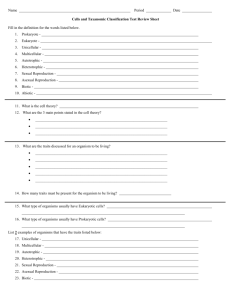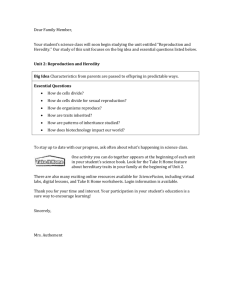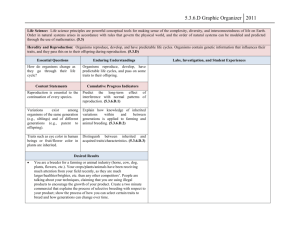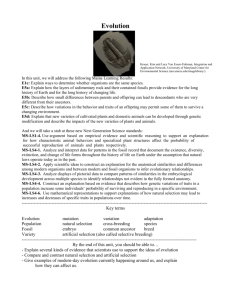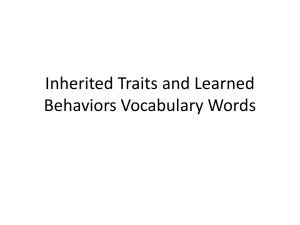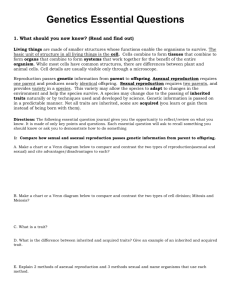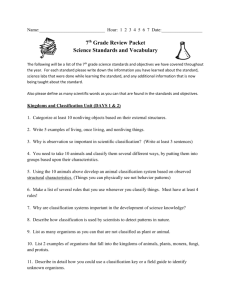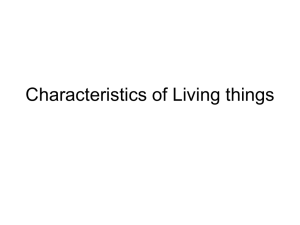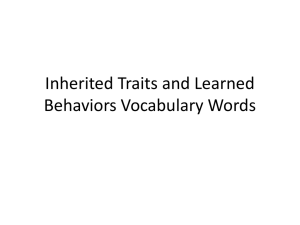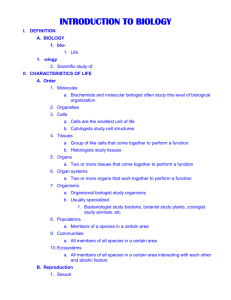Proposition Statements:
advertisement
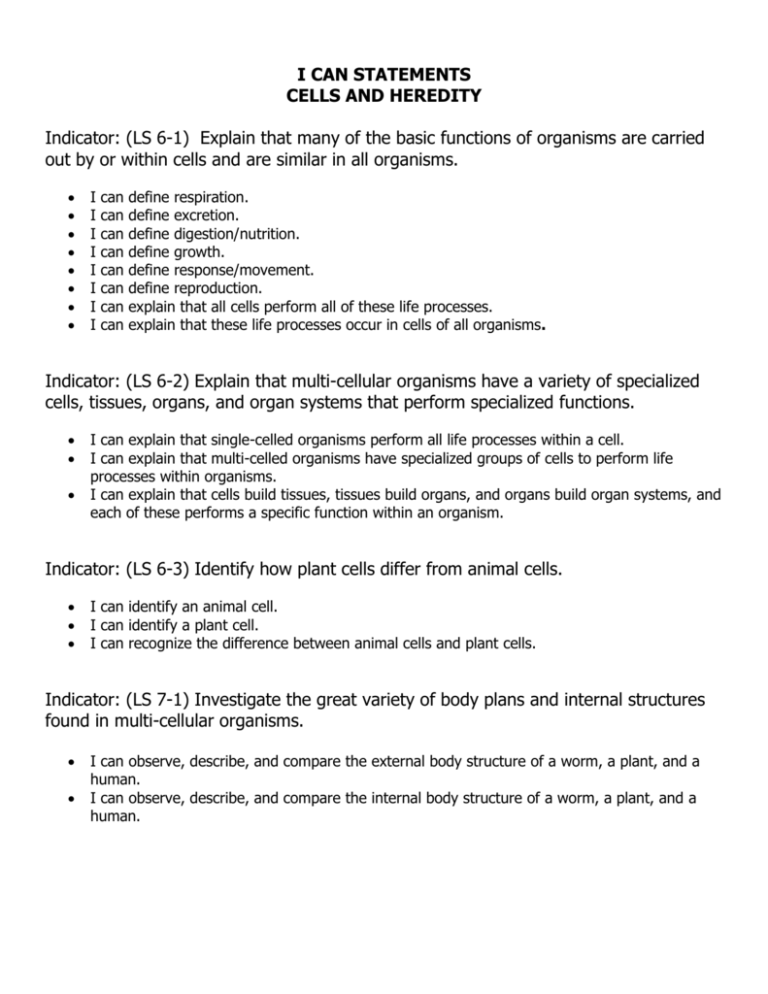
I CAN STATEMENTS CELLS AND HEREDITY Indicator: (LS 6-1) Explain that many of the basic functions of organisms are carried out by or within cells and are similar in all organisms. I I I I I I I I can can can can can can can can define respiration. define excretion. define digestion/nutrition. define growth. define response/movement. define reproduction. explain that all cells perform all of these life processes. explain that these life processes occur in cells of all organisms. Indicator: (LS 6-2) Explain that multi-cellular organisms have a variety of specialized cells, tissues, organs, and organ systems that perform specialized functions. I can explain that single-celled organisms perform all life processes within a cell. I can explain that multi-celled organisms have specialized groups of cells to perform life processes within organisms. I can explain that cells build tissues, tissues build organs, and organs build organ systems, and each of these performs a specific function within an organism. Indicator: (LS 6-3) Identify how plant cells differ from animal cells. I can identify an animal cell. I can identify a plant cell. I can recognize the difference between animal cells and plant cells. Indicator: (LS 7-1) Investigate the great variety of body plans and internal structures found in multi-cellular organisms. I can observe, describe, and compare the external body structure of a worm, a plant, and a human. I can observe, describe, and compare the internal body structure of a worm, a plant, and a human. Indicator: (LS 6-4) Recognize that an individual organism does not live forever; therefore, reproduction is necessary for the continuation of every species and traits are passed on to the next generation through reproduction. I can recognize that all living things have a life span. I can recognize that all living things must reproduce to continue the species. I can recognize that traits are passed on through reproduction. Indicator: (LS 6-5) Describe that in asexual reproduction all the inherited traits come from a single parent. I can describe that in asexual reproduction there is only one parent to pass on traits. Indicator: (LS 6-6) Describe that in sexual reproduction an egg and sperm unite and some traits come from each parent, so the offspring is never identical to either of its parents. I can describe that in sexual reproduction there are two parents. Each parent passes on traits to the offspring. Indicator: (LS 6-7) Recognize the likenesses between parents and offspring (e.g., eye color, flower color) are inherited. Other likenesses, such as table manners are learned. I can identify that physical characteristics pass on from parents to offspring. I can recognize that the behaviors of parents can be learned by the offspring. Indicator: (LS 6-8) Describe how organisms may interact with one another. I can describe how organisms may interact with one another.
